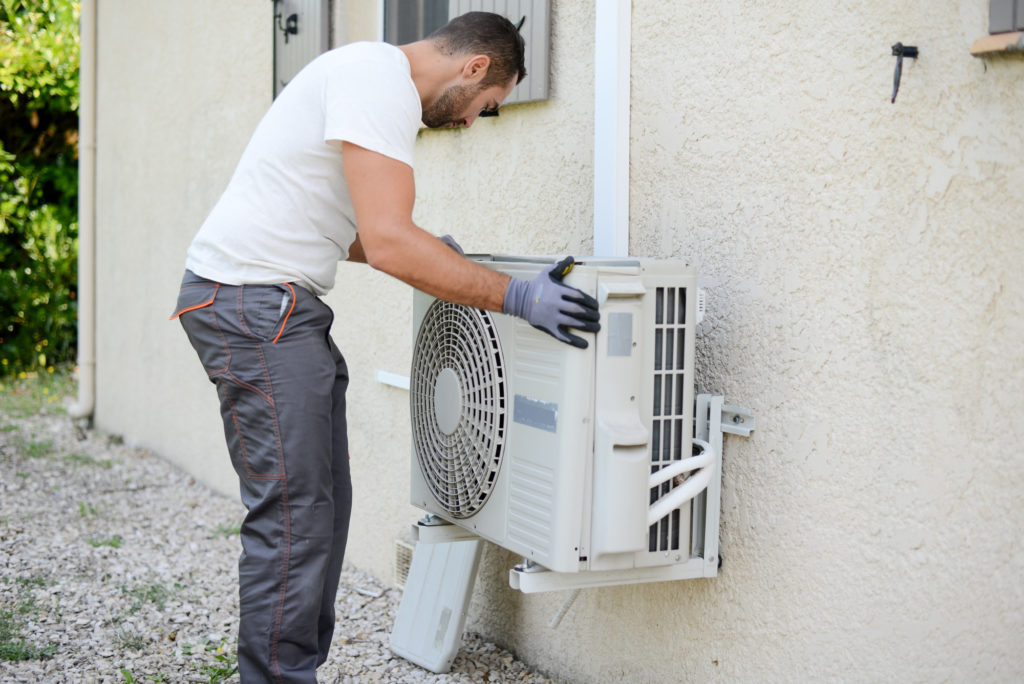When it comes to providing comfort in our houses and work environments, understanding HVAC systems is important. HVAC, an abbreviation for heating, ventilation, and air conditioning, plays a critical role in ensuring indoor air quality and temperature control. As energy costs increase, knowing how these systems work and their efficiency ratings can assist homeowners and business owners formulate knowledgeable decisions that result in both comfort and cost reductions.
One of the key components to comprehend when choosing or caring for an HVAC system is the importance of efficiency ratings. Two key metrics in this regard are SEER, or Seasonal Energy Efficiency Ratio, and AFUE, or Annual Fuel Utilization Efficiency. air conditioner give information into how effectively an HVAC unit functions and can affect everything from installation costs to monthly energy bills. In this article, we will explore the definitions of SEER and AFUE, clarifying how they impact the efficiency of heating and cooling systems and providing recommendations on selecting the right system for your situation.
The Way HVAC Components Operate
These systems, which stand for heating, ventilation, and air conditioning, are designed to manage the environment within both residential and commercial spaces. These systems operate on the basic principle of heat transfer, using multiple components to either warm or cool the air. The two main functions—heating and cooling—are realized through distinct processes. Heating is usually accomplished via furnaces, heat pumps, or boilers, while cooling is attained through air conditioning units or chillers. Understanding how these components interact is crucial to maintaining a cozy indoor environment.

Air circulates through the HVAC system via a grid of ducts, which deliver treated air around the building. When heating is required, the system draws in cooler air, warms it, and pushes it back out through the ducts. In contrast, during warmer months, the air conditioning component chills the air by passing it over refrigerant coils. This process not only lowers the temperature but also dehumidifies the air, enhancing comfort levels. Proper airflow and duct design design for maximizing efficiency in both cooling modes.
In addition, ventilation plays a vital role in ensuring indoor air quality. HVAC systems are equipped with filters that trap dust, allergens, and other pollutants, ensuring that the air circulated in your home or business is healthy and healthy. Regular maintenance, including filter changes and system inspections, can help prevent common issues that may impact the effectiveness of the HVAC system. By understanding how each part operates and works together, homeowners can make informed decisions about their heating and cooling needs.
HVAC Maintenance Tips
Consistent upkeep of your heating, ventilation, and air conditioning system is vital to ensure it operates smoothly and effectively. One of the easiest yet most critical tasks is cleaning air filters. Dirty filters limit airflow, making your system function harder and potentially leading to higher energy bills and early wear. It is suggested to monitor filters every month and change them every 1-3 months, depending on usage and the kind of filter.
An additional important maintenance task is booking yearly professional inspections and service. A skilled technician can identify potential issues before they become major problems, making sure your system operates smoothly. During these inspections, the technician can service the components, check refrigerant levels, and check ducts for leaks. This preventive approach not only improves efficiency but also increases the duration of your HVAC system.
Lastly, do not neglect the outdoor unit of your HVAC system. Keeping the area around the outdoor condenser free of debris, leaves, and grass can help preserve proper airflow and cooling efficiency. Additionally, ensuring that the blades are free of dirt and not twisted can further boost performance. Regularly inspecting these areas and taking the appropriate steps to keep them in excellent condition will help your HVAC system function optimally throughout the year.
Selecting the Right HVAC Unit
Choosing the right HVAC solution for your home involves considering several critical factors, including the size of your space, your finances, and your energy requirements. First, assess the square footage of your home and your particular heating and cooling needs. A professional HVAC technician can perform a load assessment to determine the correct system capacity, which ensures efficient performance and comfort. Investing in the correct size system will help avoid issues such as inadequate heating or cooling and excessive energy consumption.
Subsequently, take into account the energy efficiency ratings of various HVAC units. Look for models with high Seasonal Energy Efficiency Ratio (SEER) for cooling and Annual Fuel Utilization Efficiency (AFUE) for heating. These ratings demonstrate how efficiently the systems operate, which can lead to lower energy bills over time. Additionally, think about the type of system that best suits your lifestyle. Options consist of traditional central air and heating units, ductless mini-split systems, or even smart solar-powered HVAC solutions, each with unique benefits.
Lastly, think about the long-term maintenance factors and possible upgrades for your chosen system. Regular maintenance is essential for keeping your HVAC system running efficiently, so consider how accessible service options are in your area. Additionally, look for features that allow for future innovations, such as smart thermostats or compatibility with energy-efficient technologies. By taking these issues into account, you can reach an informed choice that improves your home's comfort and energy efficiency.
